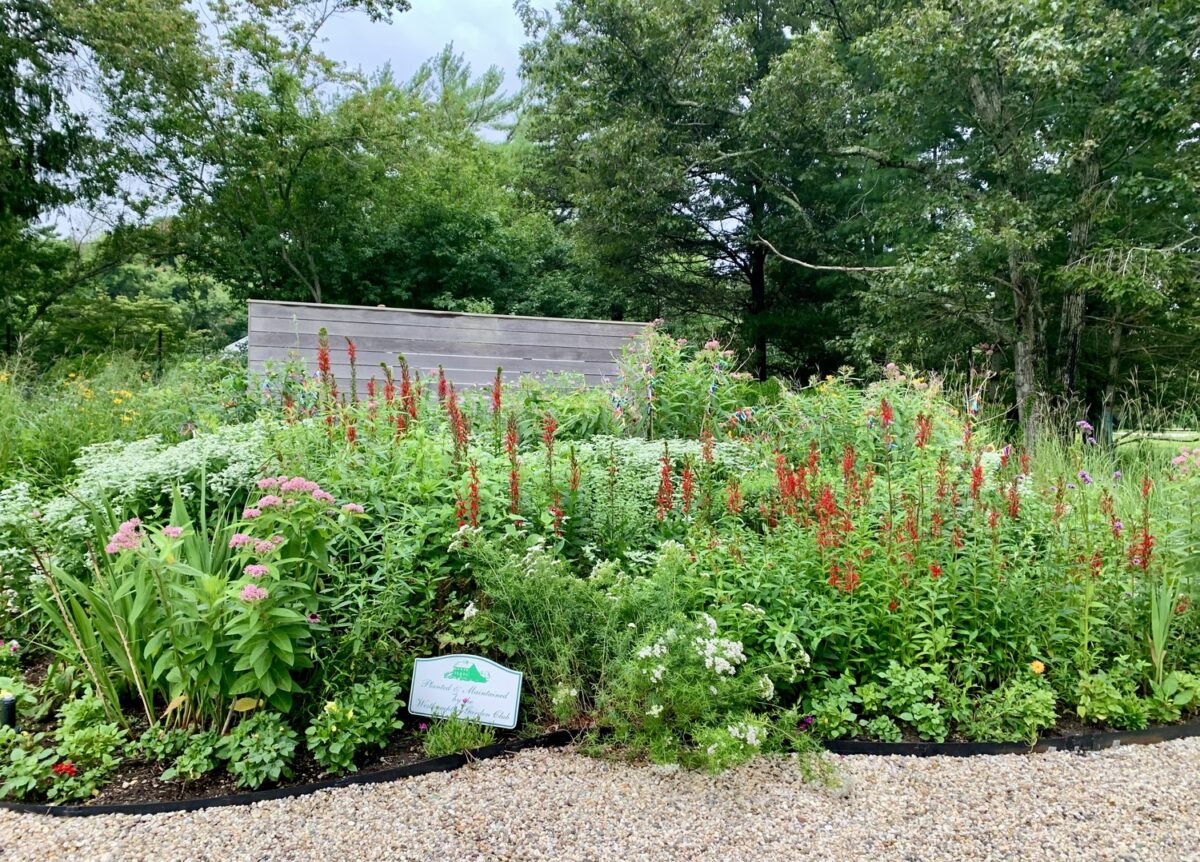
2024 was a year with both highs and lows in response to environmental challenges on the East End.
The activism of residents, garden club members, environmental organizations, businesses and legislators advanced protections for our land and water. One significant bright light was the passage of Proposition 2 Clean Water Act passed by the Suffolk County Legislature last November. Free tours of pollinator gardens throughout the East End inspired both citizens and garden centers to focus on the value of Native Plants. However, though we were fortunate not to have a hurricane, we suffered considerably from a long drought that will have ramifications for the health of our ecosystems in 2025. There is still much to do in the coming year.
Droughts not only impact the water table that we all depend on, they also weaken the health of trees, shrubs and perennials. Droughts also impact the quality of soil and the water that we rely on for human use. Plants going into winter without an adequate reserve of moisture don’t do as well as those that had the advantage of fall rains. An extreme example of what can happen are the wildfires currently devastating parts of California. This past fall, we saw wildfires burning within the limits of New York City, including a 2-acre brush fire in Brooklyn’s Prospect Park.
Drought conditions cause reduced crop yields, decreased water availability for irrigation, and potential crop failures. Protecting the vitality of the East End’s agricultural base is a major reason we all need to respect the limits on irrigation of lawns and ornamental gardens imposed by our water authorities. Increasing levels of impatience with the extreme “water hogs” in our community, who prioritized a green lawn over water conservation, may result in stronger penalties for water overuse in 2025.
The Clean Water Act (Proposition 2) will have an impact on the nitrogen pollution that comes from outdated sewer and septic systems, resulting in the upgrading of these systems necessary to restore the health of our waterways and protect our drinking water. We can anticipate a reduction in massive fish kills, turtle die-offs, toxic algal blooms and beach closings as required updates are undertaken.
The increase in menhaden/bunker population has resulted in a visible and impressive rebound in the number of whales, dolphins, sharks and striped bass seen in our coastal waters in 2024. This population is a primary source of food for predator fish and seabirds due to their large schools and high nutritional value. Both clean water and the legislation passed in 2019 limiting sein fishing that was decimating menhaden, to within three miles of the coast, have resulted in this rebound.
The need to protect pollinators and to consider our gardens as sources of nourishment for wildlife as well as beauty for us is now well understood. Suffolk Alliance of Pollinators has united garden clubs to offer programs and free pollinator garden tours to educate interested residents. These tours will be repeated in 2025. More nurseries are now selling native plants and pollinator plants due to increased demand. Suffolk County’s native plantings on highways have thrived as the use of insecticide sprays decline. “No spraying” is a cornerstone in the effort to protect pollinators, as even insecticides that are branded as “natural” or “organic” kill pollinators as well as the ticks and mosquitoes they target.
Clear-cutting is an issue that is causing increased concern and describes the construction practice of clearing building sites for quick and cheaper construction by removing all vegetation, including larger trees, destroying the ecosystem and adversely affecting neighboring properties. Sag Harbor Village now has regulations on the books that require the maintenance of larger trees on the property or the requirement to seek building department approval to remove them. More work needs to be done to protect our tree canopy from human destruction
In 2025 the Westhampton Garden Club will join in local state and national efforts to keep citizens informed of the dangers of PFAS, often referred to as “forever chemicals,” known carcinogens that remain in the human body with adverse effect. We will support efforts to protect our drinking water and eliminate PFAS use in manufacturing a wide array of products including clothing, cookware and food packaging.
Here are suggestions for homeowners who want to protect and preserve our environment:
• Plant more trees, especially native trees.
• Stop the use of pesticides and herbicides; use eco-friendly solutions for mosquitoes and ticks.
• Plant native plants and pollinator friendly plants to provide shelter and nourishment for declining numbers of insects and birds.
• Reduce the size of our lawns by creating more garden spaces with plants that support pollinators.
• Leave many of the leaves on our property to act as mulch and ensure that others are composted by the town.
• Recycle and reduce our use of plastics, especially single-use plastics.
• Respect our Night Sky regulations that reduce light pollution that can harm wildlife.
Here’s to a 2025 that is healthy for our environment and ourselves.
Alicia Whitaker is the president of the Westhampton Garden Club.